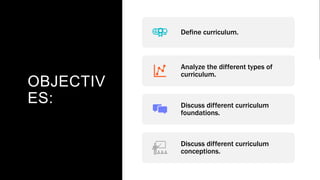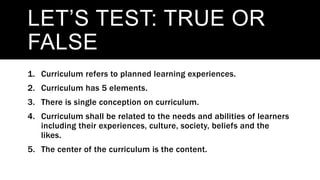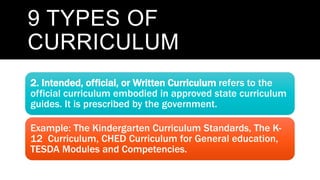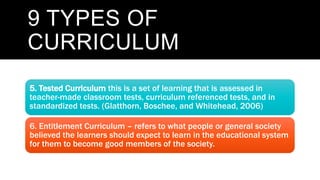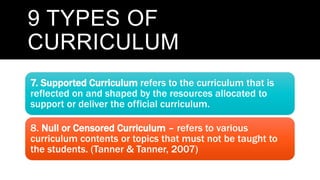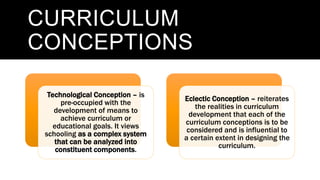This document defines curriculum and discusses its different types and conceptions. It states that curriculum refers to planned learning experiences and has five elements: curriculum intent, content, learning experiences, and evaluation. The document outlines nine types of curriculum including ideal, intended, implemented, achieved, and hidden curriculum. It also discusses three foundations of curriculum: studies of learners and learning theories, studies of life, and studies of knowledge. Finally, it presents several conceptions of curriculum such as the academic rationalist, cognitive processes, and social reconstructionist conceptions.

